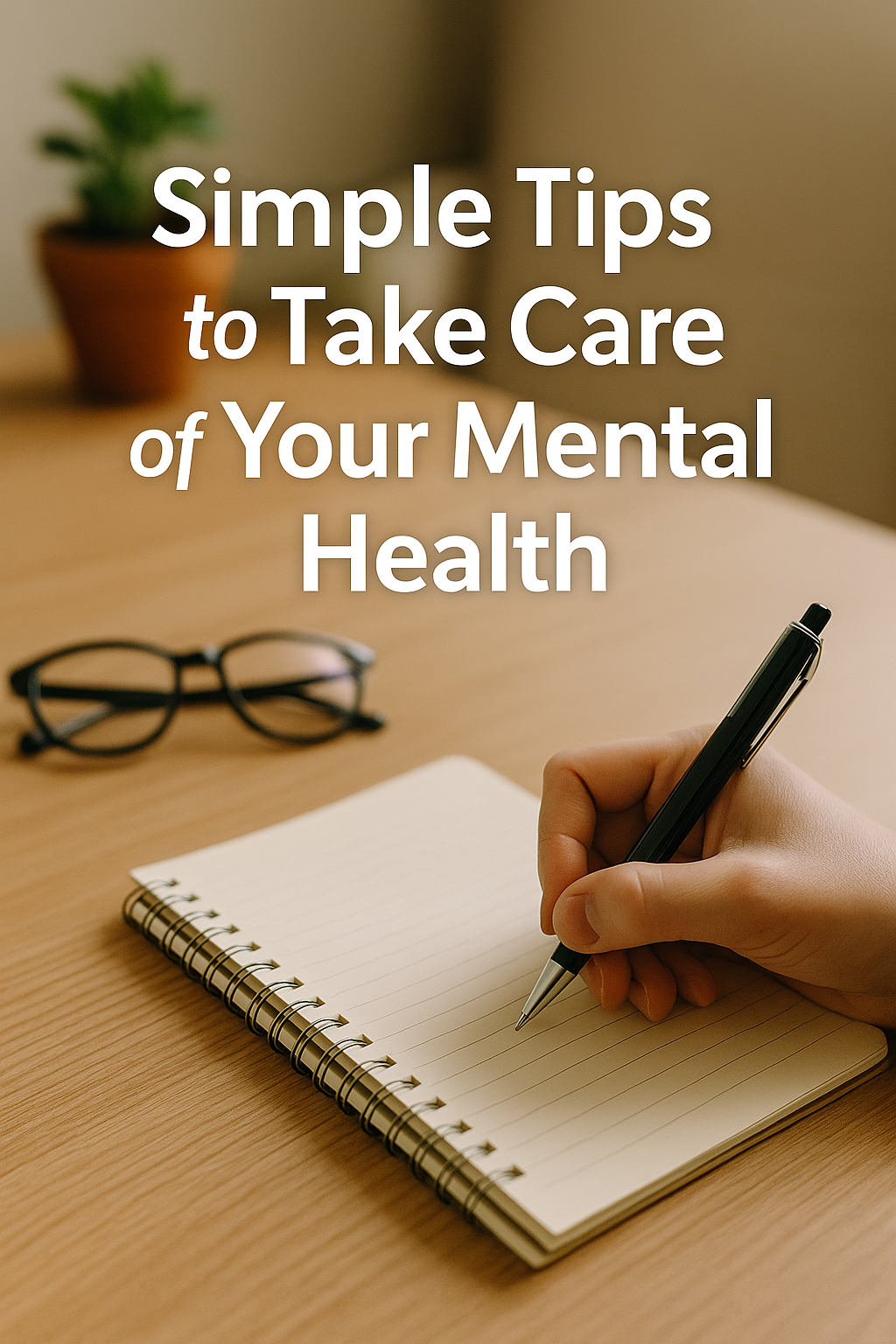Taking care of your mental health is just as important as taking care of your physical health. In a fast-paced world filled with stress, responsibilities, and constant stimulation, it’s easy to overlook your emotional well-being. But building good mental health habits can improve your mood, increase resilience, and enhance your quality of life.
Here are practical, easy-to-follow tips that anyone can apply to support better mental health on a daily basis.
1. Practice Daily Mindfulness
Mindfulness is the act of being present in the moment without judgment. It helps reduce anxiety, improve focus, and calm your mind.
How to start:
- Take 5 minutes each morning to breathe deeply and focus on your breath.
- When eating, walking, or resting, pay attention to the sensations and surroundings.
- Use free apps like Insight Timer or Headspace to guide your sessions.
2. Move Your Body Regularly
Physical activity releases endorphins, which are natural mood boosters. You don’t need to run a marathon — even gentle movement can have a big impact on your mental state.
Ideas to try:
- Go for a 20-minute walk
- Dance to your favorite song
- Stretch for 10 minutes after waking up
Regular movement reduces stress, improves sleep, and gives your mind a chance to refresh.
3. Connect With Others
Humans are social by nature. Positive relationships are essential for mental well-being. Talking to someone about how you feel can help you gain perspective and feel supported.
Ways to connect:
- Call or video chat with a friend
- Meet someone for coffee
- Join a community or online group with similar interests
If you’re feeling isolated, even small conversations can make a difference.
4. Establish a Healthy Sleep Routine
Sleep has a powerful impact on how you feel emotionally and mentally. Lack of sleep can increase feelings of depression, anxiety, and irritability.
Tips for better sleep:
- Go to bed and wake up at the same time each day
- Avoid screens at least an hour before bedtime
- Create a calming bedtime routine (reading, meditation, or warm tea)
Getting enough quality sleep can drastically improve your emotional balance.
5. Set Realistic Goals
Having goals gives you direction and a sense of purpose. However, setting unrealistic expectations can lead to frustration and burnout.
How to manage goals effectively:
- Break large goals into smaller, manageable steps
- Celebrate small wins
- Be flexible — it’s okay to adjust your goals as needed
Remember, progress is more important than perfection.
6. Take Breaks From the News and Social Media
Constant exposure to negative news or comparisons on social media can affect your mood and mental clarity. It’s important to set boundaries for your digital life.
Digital wellness tips:
- Limit social media use to certain times of the day
- Unfollow accounts that make you feel anxious or inadequate
- Take a day off from screens every week
Replacing screen time with hobbies or nature time can have a calming effect.
7. Eat Foods That Support Mental Health
Your brain needs the right nutrients to function well. While there’s no magic food to cure anxiety or depression, a balanced diet can support your mood and energy.
Brain-friendly foods include:
- Leafy greens
- Fatty fish like salmon
- Berries
- Nuts and seeds
- Whole grains
Drink plenty of water, and avoid excess caffeine and sugar, which can cause mood swings.
8. Express Yourself Creatively
Creative activities are great outlets for emotions and can reduce stress and anxiety. You don’t have to be an artist — just find something that helps you express yourself.
Try:
- Drawing, painting, or coloring
- Journaling your thoughts and feelings
- Playing an instrument or singing
- DIY crafts or baking
Creativity provides a sense of freedom and self-exploration.
9. Learn to Say “No”
Protecting your mental space often means setting boundaries. Saying “yes” to everything can leave you overwhelmed and exhausted.
How to say no kindly:
- “I appreciate the offer, but I can’t take that on right now.”
- “Thanks for thinking of me, but I need some rest.”
- “That’s not something I’m able to do at the moment.”
Prioritize your mental energy for the things that matter most.
10. Don’t Be Afraid to Ask for Help
There’s no shame in needing support. If you’re struggling with your mental health, talking to a professional can be life-changing.
Support options:
- Therapists or counselors
- Support groups (online or in-person)
- Mental health helplines or text services
Just like you would see a doctor for physical pain, seeking mental health care is a smart, responsible choice.
Your Mind Deserves Care Too
Caring for your mental health isn’t selfish — it’s essential. When you take care of your inner world, everything else becomes easier to manage. These small daily practices can lead to lasting improvement in how you feel, think, and experience life.
Start with just one or two changes from the list above. Over time, these simple habits can make a profound difference.
